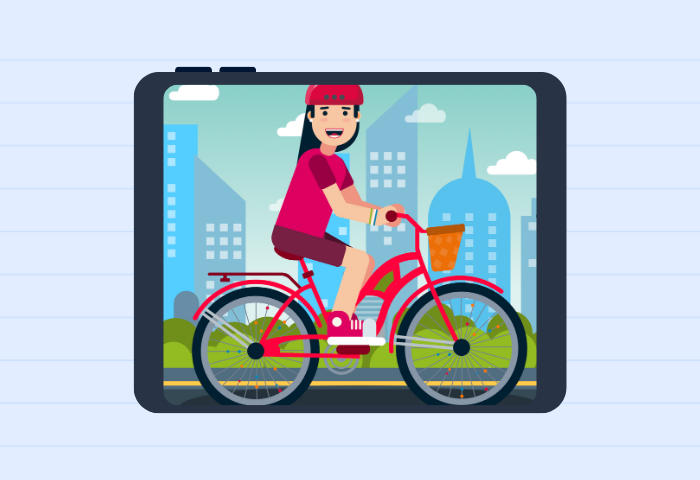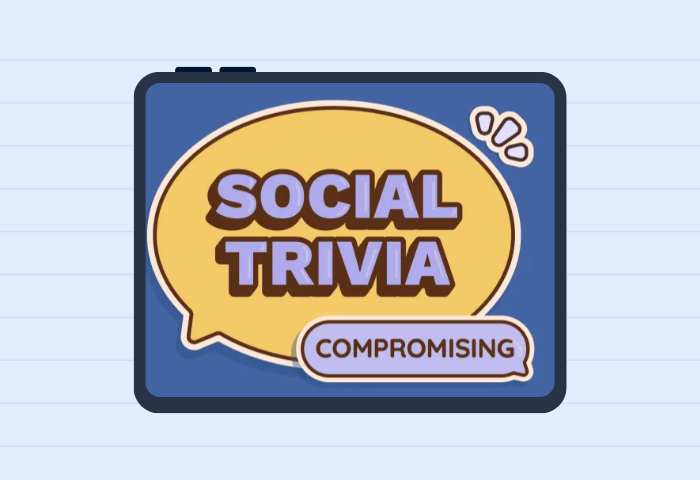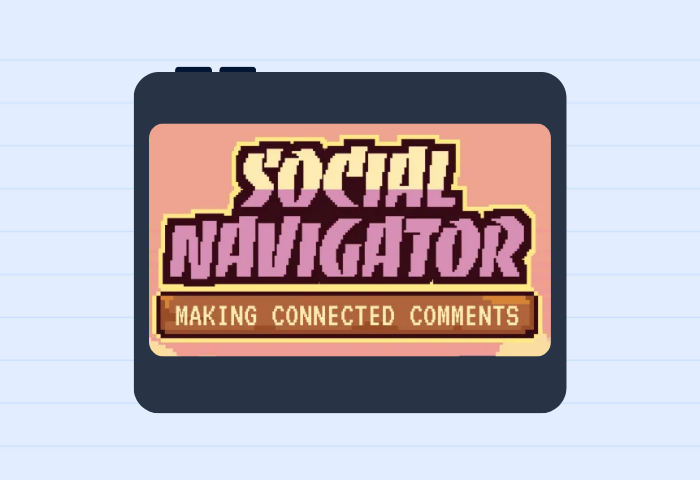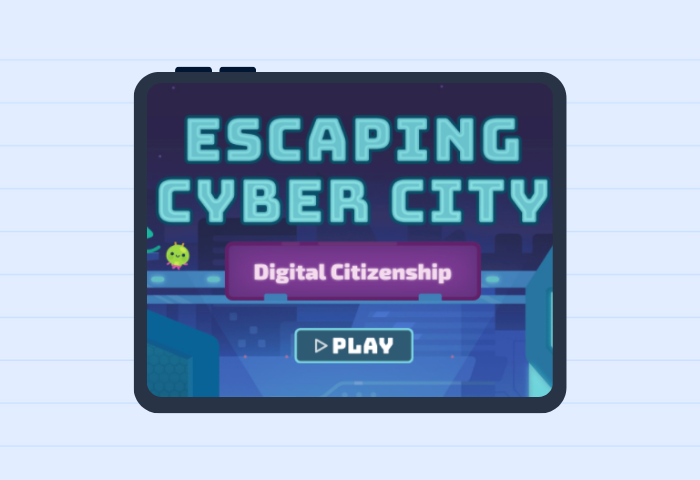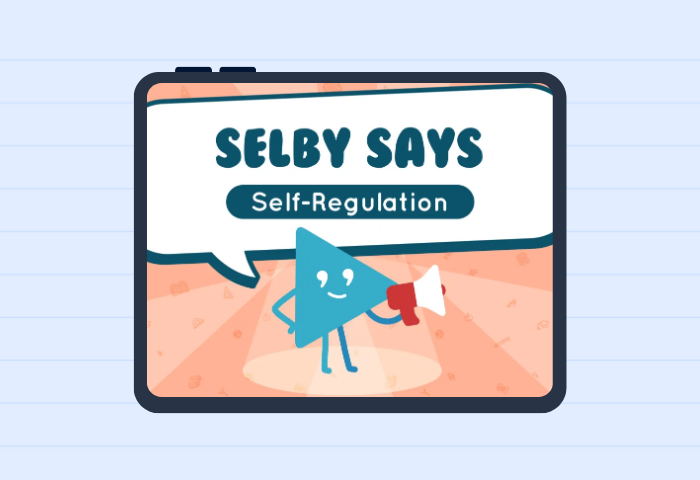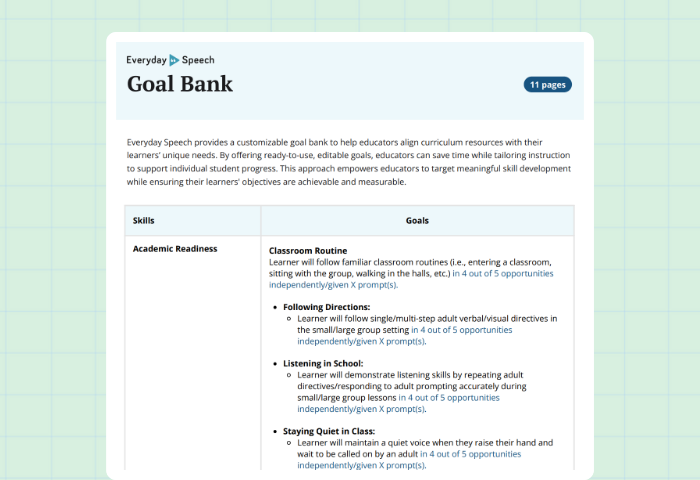Developing Social Skills in Kindergarten: Get Your Free Poster Now!
Get free social skills materials
No-prep lessons on self-regulation, emotional recognition, conversation skills, and more.
Sign up here
Developing Social Skills in Kindergarten: Get Your Free Poster Now!
As a parent or educator, you understand the importance of social skills development in kindergarten. These skills not only lay the foundation for future academic success but also contribute to positive relationships, emotional well-being, and self-confidence. In this blog post, we will explore the key social skills for kindergarten children and provide strategies for fostering their development. Plus, we have an exciting offer for you – a free social skills poster for kindergarten!
Related resources: See our full list of video modeling activities for teaching social skills.
Understanding Social Skills in Kindergarten
Social skills are the abilities that allow individuals to interact effectively and harmoniously with others. In the kindergarten setting, these skills play a crucial role in helping children navigate social situations, build friendships, and develop empathy and understanding. Here are some key social skills that are particularly important for kindergarten children:
- Sharing and taking turns: Learning to share toys, materials, and attention is an essential skill for kindergarten children. It teaches them the value of cooperation and helps them develop patience and empathy.
- Following instructions: Kindergarten is a time when children are introduced to structured learning environments. Being able to follow instructions from teachers and other adults is vital for their academic and social success.
- Active listening: Listening attentively and responding appropriately is a skill that helps children understand and engage in conversations. It also fosters empathy and respect for others’ perspectives.
- Empathy and understanding emotions: Kindergarten is a time when children begin to recognize and understand their own emotions and those of others. Developing empathy allows them to relate to their peers and respond compassionately.
- Problem-solving and conflict resolution: Kindergarten children encounter conflicts and challenges regularly. Teaching them problem-solving skills and strategies for resolving conflicts helps them navigate these situations effectively.
Benefits of Developing Social Skills in Kindergarten
The development of social skills in kindergarten has numerous benefits that extend beyond the classroom. Here are some key advantages:
- Academic success: Research shows that children with strong social skills perform better academically. They are more engaged in learning, have better attention spans, and are able to collaborate effectively with peers.
- Positive relationships with peers and adults: Socially competent children are more likely to form positive and lasting relationships with their peers and adults. They are able to communicate effectively, resolve conflicts peacefully, and show empathy and respect.
- Emotional well-being and self-confidence: Developing social skills in kindergarten helps children build a strong sense of self and emotional resilience. They are better equipped to handle stress, manage their emotions, and develop a positive self-image.
Strategies for Developing Social Skills in Kindergarten
Now that we understand the importance of social skills development, let’s explore some strategies for fostering these skills in the kindergarten setting:
Create a supportive and inclusive classroom environment
Establishing a supportive and inclusive classroom environment is crucial for promoting social skills development. Here are some ways to achieve this:
- Establish clear expectations and rules: Clearly communicate the expectations for behavior and interactions in the classroom. This provides children with a framework for appropriate social behavior.
- Encourage cooperation and teamwork: Provide opportunities for children to work together on projects and activities. Encourage them to share ideas, listen to each other, and collaborate effectively.
- Foster a sense of belonging and acceptance: Create a classroom culture that celebrates diversity and encourages acceptance. Teach children to appreciate and respect differences in others.
Incorporate SEL activities into daily routines
Social Emotional Learning (SEL) activities can be seamlessly integrated into daily routines to promote social skills development. Here are some examples:
- Morning meetings and circle time: Start the day with a group discussion where children can share their thoughts and feelings. This promotes active listening, empathy, and communication skills.
- Storytelling and role-playing: Use stories and role-playing activities to teach children about emotions, empathy, and problem-solving. This allows them to practice these skills in a safe and supportive environment.
- Cooperative games and group projects: Engage children in cooperative games and group projects that require teamwork and collaboration. This helps them develop skills such as sharing, taking turns, and resolving conflicts.
Teach social skills explicitly
Explicitly teaching social skills helps children understand the specific behaviors and actions associated with each skill. Here are some strategies for teaching social skills explicitly:
- Break down social skills into simple steps: Break down complex social skills into smaller, manageable steps. This makes it easier for children to understand and practice the skills.
- Use visual aids and prompts: Visual aids, such as posters and cue cards, can help children remember the steps and behaviors associated with each social skill. Use visual prompts during activities and discussions.
- Provide opportunities for practice and reinforcement: Create opportunities for children to practice their social skills in real-life situations. Provide feedback and reinforcement to encourage their progress.
Introducing the Free Social Skills Poster for Kindergarten
To support you in fostering social skills development in your kindergarten classroom or at home, we are offering a free social skills poster specifically designed for kindergarten children. This poster serves as a visual reminder of the key social skills and can be used as a teaching tool and reference guide.
The poster features colorful illustrations and simple explanations of each social skill, making it engaging and accessible for young learners. It can be displayed in the classroom or at home to reinforce social skills learning.
To access and download your free social skills poster for kindergarten, simply visit our website and sign up for a free trial of EverydaySpeech. Along with the poster, you will gain access to a wide range of resources and activities for social skills development.
Conclusion
Developing social skills in kindergarten is essential for children’s overall well-being and future success. By focusing on key social skills, creating a supportive environment, incorporating SEL activities, and teaching social skills explicitly, we can help children develop the necessary skills for positive relationships, academic achievement, and emotional resilience.
Don’t miss out on the opportunity to enhance your social skills curriculum with our free social skills poster for kindergarten. Start your EverydaySpeech free trial today and unlock a world of resources for social skills development!
